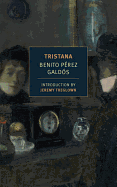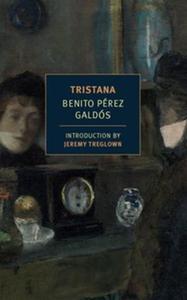

Don Lope Garrido, once a rich member of the highest social circles, now lives in cheap rented rooms. He is too much of a gentleman to have a profession. He has fought many duels over issues of personal dignity. After depleting his fortune in a failed attempt to save his best friend, he becomes the guardian of his friend's beautiful orphaned daughter, Tristana. His moral sense does not extend to women; within two months he's taken her virginity.
But Tristana is a free soul, a gorgeous, delightfully cheerful feminist a century ahead of her time who abhors marriage, refuses to surrender her independence and possesses a natural artistic sensibility. Scarcely 21, she appears to live with Don Lope like a niece or daughter. When she falls in love with a poor, angelically handsome young painter, her vigilant, despotic master threatens to teach her a lesson.
Much of the middle section of the novel is epistolary--the intoxicated correspondence between the two lovers--and here Galdós is at his most conventional. Soon, he completely turns the formula on its head in his daring and original conclusion that defies all romantic illusions, confirming that "we only learn by living and that true knowledge grows only in the untilled fields of old age."
Folksy comic touches abound, like "There's a pair of trousers for every occasion." Sometimes the humor is scorchingly smart. "Goodness and perfection do not exist. Let us thank God that he has at least given us the less bad and the relatively good." Uncomfortable moral complexity is Galdós's specialty, and the novel is a carefully constructed trap that springs shut on the reader in the last 30 pages. The ending of Galdós's tale is utterly believable, completely original and unforgettable. --Nick DiMartino, Nick's Picks, University Book Store, Seattle, Wash.
Shelf Talker: A witty 19th-century Spanish classic about a compromised young woman and the two men who love her gets a new translation.

